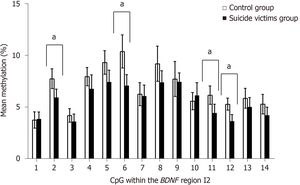The fantasy literary landscape has never been the same since Sarah J. Maas introduced her series A Court of Thorns and Roses (commonly abbreviated as ACOTAR) in 2015. Maas, who is now often considered the reigning queen of the "romantasy" genre—a merge of romance and fantasy—has captivated readers globally with her intricate world-building and compelling character arcs. The ACOTAR series, which follows the journey of Feyre Archeron, a human girl who finds herself in a dark faerie realm, has become a cultural phenomenon, amplified by its popularity on social media, particularly BookTok, and the continued discourse surrounding its many facets.
Initially starting out as a trilogy, the series has expanded into five books that delve deeper into the lives, loves, and tribulations of its characters. Readers are drawn into a world where magic collides with romance, drama unfolds in royal courts, and complex characters grapple with their traumas in a landscape rich with history and intrigue. The story begins with Feyre, a mortal hunter, who, after killing a wolf that turns out to be a faerie, is taken captive to Prythian, the fae realm. This premise sets off a series of events that combines elements of classic fairytales, such as Beauty and the Beast, while intertwining themes of love, sacrifice, and power.
With the first three books—A Court of Thorns and Roses, A Court of Mist and Fury, and A Court of Wings and Ruin—Feyre's character evolves significantly as she transitions from a vulnerable mortal to a potent force within the fae world. The author’s talent for weaving together personal trauma with grand narrative events not only elevates Feyre’s journey but resonates with readers who may find parallels in their own lives. This connection is crucial to the series' widespread acclaim, as it combines personal growth with the fantastical elements that have come to define the genre.
Maas’ storytelling prowess extends beyond just engaging plots; her characters are multifaceted, often reversing expected roles and characteristics. The dynamics in ACOTAR frequently involve complicating traditional love stories, as seen with the central love triangle involving Feyre, Tamlin—a brooding faerie lord, and Rhysand, a darker, more complex character who ultimately becomes her true love. The emotional depth present in these relationships adds layers that captivate readers, compelling them to not only root for happy endings but also engage in critical conversations about romance and consent.
Beyond the nuanced character relationships, the series has gained exceptional traction due to the buzz generated on platforms like TikTok. With the popularity of the tag #ACOTAR reaching over 8.9 billion views, readers are sharing everything from theories about character pairings to elaborate fan art. This vibrant community reflects the series' impact and how it has rekindled a love for reading among many, often serving as an entry point for new fans into the fantasy genre.
The upcoming adaptation of ACOTAR into a live-action series on Hulu has fueled additional excitement and speculation. Announced in March 2021, with Maas herself involved as a co-showrunner alongside notable figure Ron D. Moore, the adaptation was expected to closely follow the narrative’s beloved arcs. However, recent reports have painted a less optimistic picture regarding the adaptation’s progress, leading fans to ponder its fate. While there are signs of continued development, confirmation remains elusive, prompting fans to stay alert for any news.
Fans’ concerns about the adaptation’s viability highlight the passion and dedication that has emerged since the stories were first published. Many are asking: Will this adaptation do justice to the intricacies of Maas's writing? Will the character development, so vital to the books, be effectively translated to screen? These questions encapsulate the broader trepidations of fandom as adaptations frequently inspire both excitement and skepticism.
The richness of A Court of Thorns and Roses extends beyond its main story arc. The aftermath of Feyre’s personal evolution is compounded by the expansive universe Maas has crafted, populated by a plethora of characters who have captivated audiences; each with their own tales interwoven with themes of resilience and redemption. Notably, the emotional weight that accompanies the characters’ backstories resonates deeply, as many of Maas’s protagonists grapple with trauma, loss, and the fight to reclaim their power.
This depth is particularly evident in Feyre's relationship with her family, especially in the stark contrast between her struggles and the lives that others lead within Prythian. The dichotomy between her past as a mortal and her present in the fae realm delivers significant commentary on privilege, sacrifice, and transformation. Each revelation about Feyre’s past adds not only depth to her character but also reflection on societal issues that extend beyond the realms of fiction.
Moreover, Maas's creative ability to integrate elements of different fairy tales—from the beautiful settings reminiscent of Beauty and the Beast to the emotional arcs akin to traditional coming-of-age stories—allows readers to feel a sense of nostalgia while simultaneously keeping the storytelling fresh and relevant. This blend of familiarity with unexpected twists keeps readers engaged and eager for more.
Despite her initial foray into the realm of young adult fiction, Maas successfully transitioned into writing for adult audiences, expanding on the themes of love and trauma while retaining the essence of what made her earlier works resonate with fans. In her latest series, Crescent City, Maas explores new territories, deepening the discussions around identity and belonging in a fantasy setting, allowing her fans to dive into a different yet equally compelling narrative landscape.
As readers anticipate the future of the ACOTAR series and its adaptation, one key takeaway remains: Sarah J. Maas has not only established herself as a leader in the romantasy genre but has also rekindled a collective passion for reading among diverse audiences. Whether through individual journeys of healing or epic tales of love and war, her works continue to inspire countless readers, proving that deeply emotional storytelling remains timeless.



